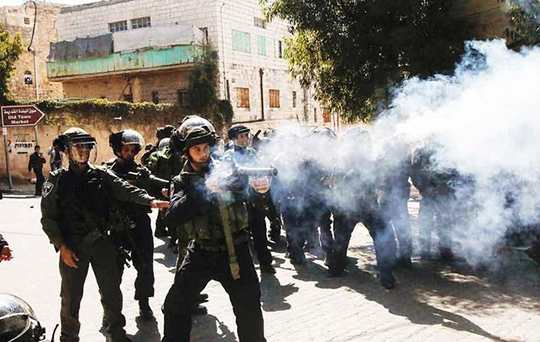Beirut, Feb 26: Israel’s military fired tear gas across the border into Lebanon on Saturday, breaking up a small Lebanese protest against cameras installed there, Lebanon’s National News agency reported.

Israel’s military said the protesters crossed the international border, prompting the dispersal. The UN peacekeeping force, known by the acronym UNIFIL, said it is investigating the various claims and that the situation later calmed.
UNIFIL is closely coordinating with the Lebanese Army and troops are still on the ground to ensure there is “no violation” of the UN-demarcated borders, said spokesman Andrea Tenenti.
Tenenti said there are no Israeli cameras that violate the UN-demarcated borders. He said the UNIFIL is in touch with both parties to ensure calm.
The protest by residents of Meiss El-Jabal, near the border with Israel, was led by a Lebanese lawmaker. The protesters were objecting to Israel’s installation of security cameras and a solar panel along the UN-demarcated border, which they call “contested.”
Lawmaker Qassim Hashim told reporters at the borders that UN-demarcated borders are a “withdrawal line,” and not Israeli territories. Another protester said in remarks carried by Al-Manar TV that the cameras are used to spy on Lebanon.
The Israel-Lebanon border has remained mostly quiet since 2006, when Israel and Hezbollah fought for a month-long war that left some 1,200 Lebanese and 160 Israelis dead, and ended in a stalemate.
Israel’s Army said dozens of protesters crossed the international border, prompting troops to fire tear gas to disperse the crowd “and prevent further infiltrations into Israeli territory.”
Al-Manar TV, affiliated with Lebanon’s militant group Hezbollah, said some people suffered shortness of breath because of the tear gas.





Comments
rightly done israel , use snipers ... shoot on their head :) we are with you ... long live zionist regime ...lone live indo israel friendship.
Add new comment